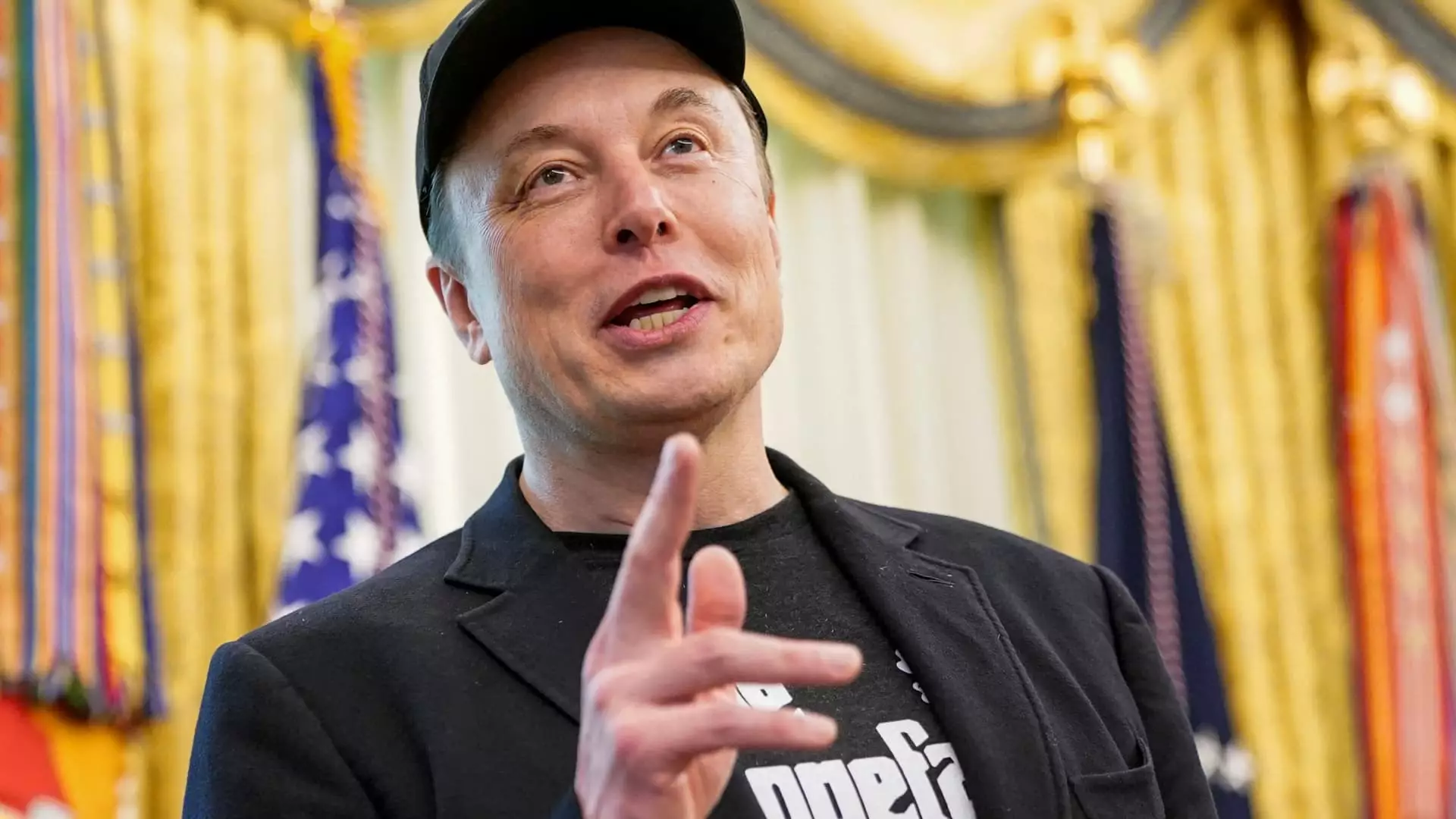Elon Musk, the ever-controversial billionaire entrepreneur, recently unleashed a scathing critique on a substantial tax-and-spending bill supported by former President Donald Trump. Referring to it as a “disgusting abomination,” Musk’s visceral denunciation is not just sensationalism; it reflects a profound concern about fiscal irresponsibility that resonates with many Americans who are tired of politicians failing to manage taxpayer dollars wisely. Musk’s assertion that the bill could skyrocket the federal budget deficit to an unprecedented $2.5 trillion is alarming, and raises critical questions about our government’s priorities.
Musk’s animosity toward this legislative package echoes sentiments that are often brushed aside in the whirlwind of partisan politics. Regardless of whether one views Musk as a progressive figure or a libertarian rebel, his call for fiscal sanity comes at a time when the nation is grappling with growing debt. His words resonate especially loudly within center-wing liberal circles, where the belief in balanced budgets and responsible governance should take precedence over political loyalties.
Political Dissonance and Partisan Defense
While one might chuckle at Musk’s dramatic style, his remarks seem to have struck a chord in unexpected quarters. The White House, led by press secretary Karoline Leavitt, dismissed Musk’s outrage as irrelevant, reaffirming their belief in the bill’s positive implications. However, this response underscores a glaring disconnect; tax-and-spending policies should not be blissfully generalized as “big and beautiful” simply because they align with the current administration’s agenda. In fact, dismissing criticism from high-profile figures like Musk may suggest a growing unease within the Democratic ranks about the bill’s genuine impact.
Furthermore, the rebuttal implies a significant myopia in understanding economic realities. The Congressional Budget Office’s assessment that the package will inflate the deficit by $3.8 trillion over the next decade should prompt serious reflection rather than blind denial. The notion that the CBO is politically biased, as suggested by Leavitt, lacks substantive merit and showcases an alarming trend of selective truth. This increasing polarization where facts get skewed based on party allegiance may ultimately jeopardize the fiscal stability that the middle class heavily relies on for their prosperity.
A Glimpse of Bipartisan Agreement
Interestingly, Musk’s critique garnered support from unlikely allies within the Republican Party itself. Figures like Rep. Thomas Massie and Sen. Mike Lee echoed Musk’s sentiments, showcasing that fiscal conservatism is not off the table, even among current detractors of Trump. Massie’s simple affirmation of Musk’s analysis—“He’s right”—indicates a strain of fiscal responsibility that transcends party lines. Such insights should not be ignored; they point toward a growing faction of lawmakers who may prioritize economic stability over party allegiance, suggesting a potential for future bipartisan collaboration on responsible spending.
Even as Musk’s name often stirs controversy, his ability to catalyze debate on such issues cannot be overlooked. By calling out the egregious nature of spending bills like Trump’s, he underscores a critical pivot that many in America have been yearning for—an honest dialogue about fiscal responsibility and its impact on everyday lives. Musk’s warning that the middle class can be hollowed out through reckless expenditure resonates deeply with citizens who live paycheck to paycheck, fearing for their financial futures.
The Broader Implications
Musk’s criticism reaches beyond party politics; it taps into a critical narrative about America’s economic future. Concern for mounting debt should not become a slogan reserved for the political fringes but rather a foundation for stable governance that prioritizes sustainability over populism. The implications of failing to reign in public spending could lead to unsettling times for individuals who strive for financial stability.
The reactions to Musk’s comments reveal a landscape where economic discourse must evolve beyond partisan bickering. Genuine solutions require mutual understanding and a keen sense of responsibility towards the American populace. The critical issue at hand is not merely a fiscal policy debate; it’s about the survival of the American middle class and ensuring that future generations inherit a nation characterized by opportunity rather than debt.

Leave a Reply